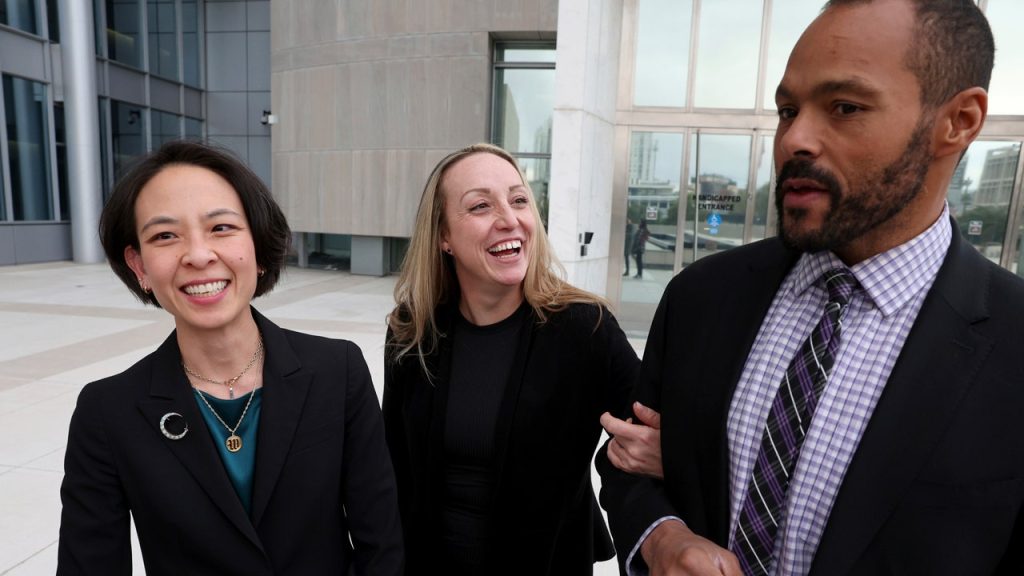Kirstin Lobato, now known as Blaise, endured a harrowing 16-year ordeal within the Nevada prison system, wrongfully convicted twice for a 2001 murder she did not commit. At the young age of 18, she was thrust into the unforgiving machinery of the justice system, facing accusations related to the gruesome death of Duran Bailey, a homeless man found with severe injuries. Despite the absence of physical evidence or eyewitness testimony linking her to the crime, Lobato’s assertion of innocence was repeatedly dismissed, primarily based on an alleged jailhouse confession which she vehemently denied. This alleged confession, along with what a jury later determined to be fabricated evidence, formed the crux of the prosecution’s case, leading to her initial conviction in 2002.
The injustice of Lobato’s imprisonment was underscored by the fact that during the time of the murder, she was demonstrably hundreds of miles away from the crime scene, in her hometown of Panaca, Nevada. This crucial piece of evidence, however, was initially overlooked or disregarded, leading to her first wrongful conviction. While the Nevada Supreme Court overturned this initial verdict in 2004 due to procedural errors, Lobato was tragically retried and convicted again in 2006 on lesser charges, receiving a sentence of 13 to 45 years. The retrial, like the original, relied heavily on the contested confession and seemingly disregarded her alibi. This second conviction further solidified the perception of her guilt, consigning her to years of further unjust incarceration.
Finally, in a dramatic turn of events in late 2017, Lobato’s unwavering pursuit of justice bore fruit. With the support of the Innocence Project and dedicated legal counsel, her case was once again brought before the Nevada Supreme Court. This time, the court recognized the compelling evidence of her alibi, acknowledging her presence in Panaca at the time of the murder, and exonerated her, finally freeing her from prison after nearly two decades of wrongful confinement. The court’s recognition of her innocence was a testament to the perseverance of Lobato, her legal team, and the Innocence Project in challenging the flawed convictions. This exoneration not only restored her freedom but also paved the way for her to seek redress for the years lost.
The aftermath of her exoneration saw Lobato pursuing legal action against the Las Vegas Metropolitan Police Department and the two detectives involved in her case. A civil trial ensued, culminating in a significant victory for Lobato. The jury found that detectives Thomas Thowsen and James LaRochelle, now retired, had fabricated evidence and intentionally inflicted emotional distress upon her during their investigation. This verdict validated her long-held claims of police misconduct and significantly bolstered her pursuit of accountability. The jury awarded her over $34 million in compensatory damages from the police department and $10,000 in punitive damages from each former detective.
This substantial financial award not only recognized the profound harm she suffered during her wrongful imprisonment but also sent a strong message about the consequences of police misconduct and the importance of upholding justice. While the Las Vegas Metropolitan Police Department had previously agreed to pay damages if the jury ruled in Lobato’s favor, the substantial sum awarded underscored the gravity of the injustice she faced. Though the detectives and their attorney maintained their position and indicated a likely appeal, the jury’s decision remains a significant milestone in Lobato’s journey to rebuild her life after years of wrongful confinement.
Despite the monumental victory and financial compensation, the scars of Lobato’s ordeal remain. The years stolen from her, the emotional distress endured, and the damage to her reputation are irreparable. While the $34 million award offers some measure of restitution, it cannot truly compensate for the lost opportunities, the pain, and the profound impact on her life. Her case serves as a stark reminder of the fallibility of the justice system and the devastating consequences of wrongful convictions. It underscores the importance of continued vigilance, diligent legal representation, and organizations like the Innocence Project in fighting for the wrongly accused and ensuring accountability for those who perpetuate injustice.

